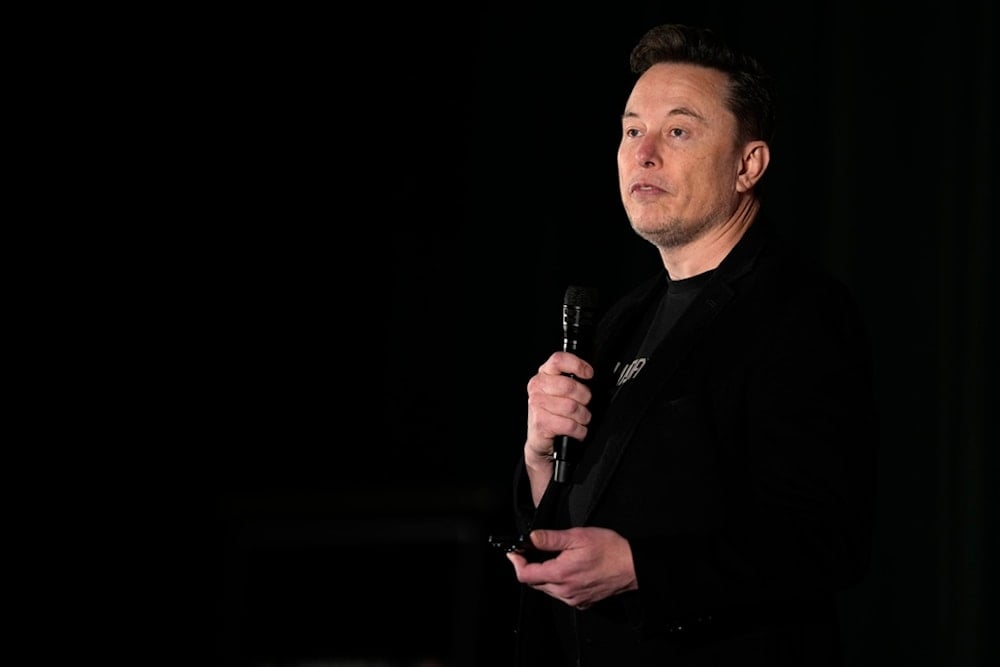Musk’s X slams French foreign interference probe as politically driven
X labels French investigation into algorithm bias and foreign interference “politically motivated” and refuses to hand over data, citing legal rights.
-

Elon Musk speaks as part of a campaign town hall in support of Republican presidential nominee former President Donald Trump in Folsom, Pa., Thursday, Oct. 17, 2024 (AP Photo/Matt Rourke)
A French investigation into the alleged foreign interference and algorithmic bias on the Elon Musk-owned social media platform X is “politically motivated,” the company said Monday. In a statement posted to the platform, X declared it would not cooperate with the probe, citing legal protections and concerns about political agendas.
Responding publicly to the investigation, X claimed that French authorities were using national law to advance political objectives and stifle free speech.
“X believes that this investigation is distorting French law in order to serve a political agenda and, ultimately, restrict free speech,” the company stated.
The platform emphasized that it “has not acceded to the French authorities' demands” to provide access to its recommendation algorithm and real-time data, asserting that it is “within its legal rights” to deny the request.
Allegations of algorithm manipulation and bias
The probe, officially launched on July 11 by France’s cybercrime prosecutors, centers on suspected crimes including data manipulation and unauthorized system access “as part of a criminal gang.” Authorities opened the case following two complaints filed in January over “foreign interference” in French political discourse via X.
One of the complaints was submitted by Eric Bothorel, a member of parliament from President Emmanuel Macron’s centrist party. Bothorel accused Musk of personally influencing the platform’s content direction and reducing political diversity.
“Democracy is too fragile to let digital platform owners tell us what to think, who to vote for or even who to hate,” Bothorel said.
X rejected the claim outright, saying “Mr Bothorel has accused X of manipulating its algorithm for 'foreign interference' purposes, an allegation which is completely false,” the company said.
Investigation highlights new digital regulation challenges
The case marks the first high-profile test of a French law targeting foreign interference in politics, passed last year. Prosecutors have not confirmed whether the current investigation falls directly under this legislation.
X raised strong objections to the inclusion of an “organised gang” classification in the charges.
“The characterisation is usually reserved for drug cartels or mafia groups,” X stated, arguing that the designation unjustifiably grants police broad powers including the surveillance of employee devices.
The company also questioned the neutrality of the investigators selected by French authorities. In particular, X highlighted concerns regarding mathematician David Chavalarias and computer scientist Maziyar Panahi, both of whom are involved in “HelloQuitteX,” a campaign designed to help users leave the platform.
“Picking them raises serious concerns about the impartiality, fairness and political motivations of the investigation,” X said.
Musk’s political activity adds fuel to controversy
The controversy surrounding the X foreign interference probe comes in the wake of Elon Musk’s increased political visibility in Europe. His public support for the far-right Alternative for Germany (AfD) party ahead of the February legislative elections triggered criticism across the European political spectrum.
As scrutiny grows, the investigation into X signals broader tensions between digital platforms and national governments attempting to assert control over algorithmic influence, data access, and political discourse.
Read more: Elon Musk's influence stirs up European politics: WSJ

 3 Min Read
3 Min Read










